Related Research Articles

Helen Adams Keller was an American author, disability rights advocate, political activist and lecturer. Born in West Tuscumbia, Alabama, she lost her sight and her hearing after a bout of illness when she was 19 months old. She then communicated primarily using home signs until the age of seven, when she met her first teacher and life-long companion Anne Sullivan. Sullivan taught Keller language, including reading and writing. After an education at both specialist and mainstream schools, Keller attended Radcliffe College of Harvard University and became the first deafblind person in the United States to earn a Bachelor of Arts degree.

William Sydney Porter, better known by his pen name O. Henry, was an American writer known primarily for his short stories, though he also wrote poetry and non-fiction. His works include "The Gift of the Magi", "The Duplicity of Hargraves", and "The Ransom of Red Chief", as well as the novel Cabbages and Kings. Porter's stories are known for their naturalist observations, witty narration, and surprise endings.

Austin is a city in and the county seat of Mower County, Minnesota, United States. The population was 26,174 at the 2020 census. The town was originally settled along the Cedar River and has two artificial lakes, East Side Lake and Mill Pond. It was named for Austin R. Nichols, the area's first European settler.

Hormel Foods Corporation, commonly known as Hormel Foods or simply Hormel, is an American food processing company founded in 1891 in Austin, Minnesota, by George A. Hormel as George A. Hormel & Company. The company originally focused on the packaging and selling of ham, sausage and other pork, chicken, beef and lamb products to consumers, adding Spam in 1937. By the 1980s, Hormel began offering a wider range of packaged and refrigerated foods. The company changed its name to Hormel Foods Corporation in 1993 and uses the Hormel brand on many of its products; the company's other brands include Planters, Columbus Craft Meats, Dinty Moore, Jennie-O, and Skippy. The company's products are available in over 80 countries worldwide.

Rudolf Franz Ferdinand Höss was a German SS officer and the commandant of the Auschwitz concentration camp. After the defeat of Nazi Germany and the end of World War II, he was convicted in Poland and executed for war crimes committed on the prisoners of the Auschwitz concentration camp and for his role in the Holocaust.

Frederick Rudolph "Ted" Schroeder was an American tennis player who won the two most prestigious amateur tennis titles, Wimbledon and the U.S. National. He was the No. 1-ranked American amateur player in 1942; the No. 2 for 4 consecutive years, 1946 through 1949, and the latter year saw Schroeder ranked World No. 1 amateur by Pierre Gillou. He was born in Newark, New Jersey, but developed as a tennis player in Southern California under the guidance of Perry T. Jones.
The Schabir Shaik trial was an important court trial in post-apartheid South Africa. The case, tried in the Durban and Coast Local Division of the High Court before Judge Hilary Squires, established a fraudulent and corrupt relationship between Durban-based businessman Schabir Shaik and former South African leader Jacob Zuma.
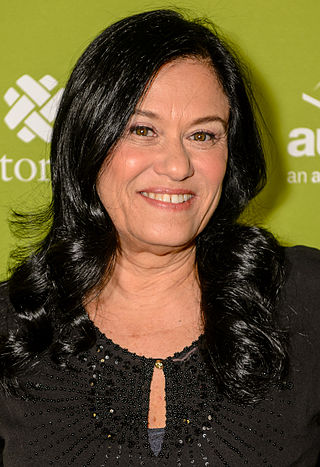
Barbara Kopple is an American film director known primarily for her documentary work. She is credited with pioneering a renaissance of cinema vérité, and bringing the historic french style to a modern American audience. She has won two Academy Awards, for Harlan County, USA (1977), about a Kentucky miners' strike, and for American Dream (1991), the story of the 1985–86 Hormel strike in Austin, Minnesota, making her the first woman to win two Oscars in the Best Documentary category.

Universal Soldier is a 1971 film directed by Cy Endfield and starring George Lazenby as a mercenary. It was the final film of Endfield, who also has an acting role in it. The title came from the 1964 song of the same name by Buffy Sainte-Marie.
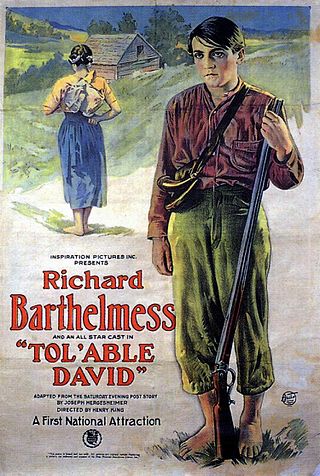
Tol'able David is a 1921 American silent film based on the 1917 Joseph Hergesheimer short story of the same name. It was adapted to the screen by Edmund Goulding and directed by Henry King for Inspiration Pictures. A rustic tale of violence set in the Allegheny Mountains of eastern West Virginia, it was filmed in Blue Grass, Virginia, with some locals featured in minor roles.
Wallace H. Jerome was an American businessman, and the founder of Jerome Foods, later the Turkey Store Company, which was sold to Hormel Foods and merged with Jennie-O Foods, to form what is known today as the Jennie-O Turkey Store company and products. He is considered a pioneer of the domestic turkey industry.
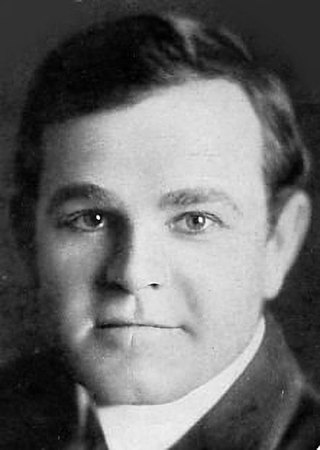
George Guy Oliver was an American actor. He appeared in at least 189 silent film era motion pictures and 32 talkies in character roles between 1911 and 1931. His obituary gives him credit for at least 600. He directed three films in 1915.
James Gregory was the censor officer and prison guard of Nelson Mandela for many years of his captivity. He later wrote the book Goodbye Bafana: Nelson Mandela, My Prisoner, My Friend, on which the 2007 film Goodbye Bafana was based. The book, and later the film, are based on the idea that Gregory and Mandela had developed a friendship despite being prison guard and prisoner, respectively.
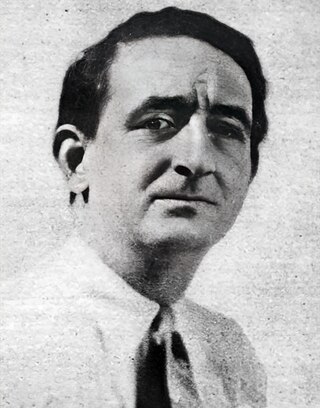
Charles Fulton Oursler Sr. was an American journalist, playwright, editor and writer. Writing as Anthony Abbot, he was an author of mysteries and detective fiction. His son was the journalist and author Will Oursler (1913–1985).
The show jumping horse killings scandal refers to cases of insurance fraud in the United States in which expensive horses, many of them show jumpers, were insured against death, accident, or disease, and then killed to collect the insurance money.
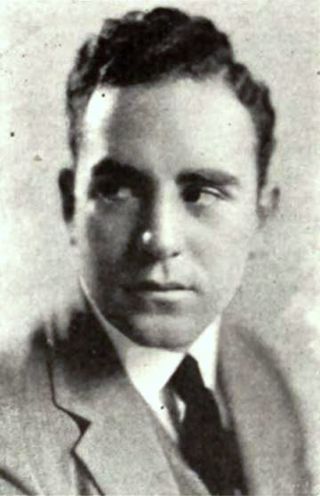
Bernard Joseph Durning was an American silent film director and actor who worked primarily with Lon Chaney, Dustin Farnum, and Buck Jones.
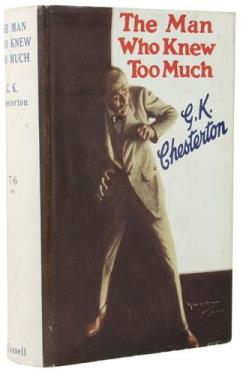
The Man Who Knew Too Much: And Other Stories (1922) is a book of detective stories by English writer G. K. Chesterton, published in 1922 by Cassell and Company in the United Kingdom, and Harper Brothers in the United States. It contains eight connected short stories about "The Man Who Knew Too Much", and unconnected stories featuring other heroes/detectives. The United States edition contains one of these additional stories: "The Trees of Pride", while the United Kingdom edition contains "Trees of Pride" and three shorter stories: "The Garden of Smoke", "The Five of Swords" and "The Tower of Treason".
Chapters from My Autobiography are 25 pieces of autobiographical work published by American author Mark Twain in the North American Review between September 1906 and December 1907. Rather than following the standard form of an autobiography, they comprise a rambling collection of anecdotes and ruminations. Much of the text was dictated.
Jeffrey Martin Ettinger is an American corporate executive, businessman, philanthropist, politician, and attorney who currently serves as the interim President of the University of Minnesota.
The 1985–1986 Hormel strike was a labor strike that involved approximately 1,500 workers of the Hormel meatpacking plant in Austin, Minnesota in the United States. The strike, beginning August 17, 1985 and lasting until September 13 of the following year, is considered one of the longest strikes in Minnesota history and ended in failure for the striking workers.
References
- ↑ Johnson, Eric (June 18, 2012). "Remembering a criminal: Group recalls how embezzler Cy Thomson created Oakdale Park". Austin Daily Herald. Austin, Minnesota . Retrieved 2015-06-09.